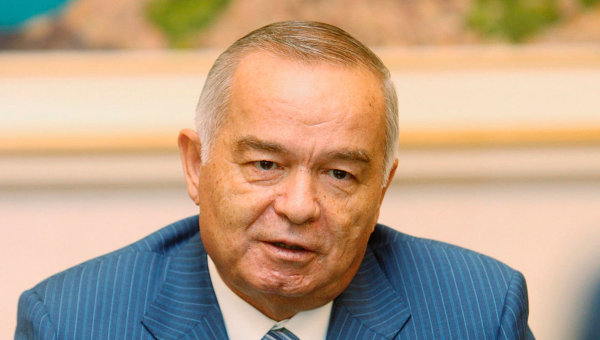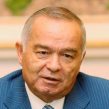
Political and Economic Developments in Uzbekistan: 2013 Year in Review
Publication: Eurasia Daily Monitor Volume: 11 Issue: 15
By:

As 2013 came to a close, China and Russia continued to be Uzbekistan’s most important partners: China as the country’s biggest investor, and Russia as its largest trade partner. However, last year’s signing of the Agreement on Strategic Partnership between Uzbekistan and Kazakhstan made Astana Tashkent’s closest counterpart in the region. Although the United States did not play a significant role in Uzbekistan’s economic life, the number of meetings that US officials and business people managed to secure with President Islam Karimov equaled the number of meetings the Uzbekistani head of state had with Chinese and Russian officials. According to its official plans, in 2014 the government of Uzbekistan will domestically focus on sustaining economic growth and creating jobs (see EDM, January 15). Outside its borders, Uzbekistan will closely watch the situation in Afghanistan and the security implications of this year’s departure of International Security Assistance Forces (ISAF) and US forces from the region (see below).
In terms of foreign affairs, Uzbekistan began 2013 with a visit of President Karimov to Russia in April. The signing of an inter-governmental economic cooperation program for 2013–2017 and an agreement to jointly protect investments were the main highlights of this meeting. The investment agreement stemmed from the fact that Russia has 850 companies operating in Uzbekistan. Moscow wants to avert a future repeat of anything similar to the scandal involving Russian cell phone giant MTS, whose assets were expropriated by Uzbekistan’s government in 2010 (https://www.rg.ru/2013/12/25/soglashenie-site-anons.html).
Also last year, normally integration-wary Uzbekistan both signed and ratified the Russia-led Free Economic Zone agreement, thus becoming the regional economic grouping’s seventh full member. On January 29, 2013, Karimov issued a decree on “Measures to increase competitiveness of domestic products and strengthening the control of illegal import of goods” with the purpose of boosting Uzbekistan’s domestic production for exports. Yet, although Uzbekistan joined the Free Economic Zone—a market for its products—without hesitation, it is still a long way from becoming a member of the Customs Union, which requires its member to also open their domestic markets to imports from the other members (https://www.gazeta.uz/2013/02/14/goods; https://www.ng.ru/cis/2013-04-15/6_uzbekistan.html). Nonetheless, Russia remained Uzbekistan’s biggest trading partner, with 29 percent of Uzbekistani exports going to Russia and trade turnover for the first nine months of 2013 reaching $5.4 billion (https://www.uzdaily.uz/articles-id-18606.htm).
Over the course of the past year, Kazakhstan’s President Nursultan Nazabayev became perhaps President Karimov’s closest Central Asian ally. Nazarbayev traveled to Tashkent on July 13, 2013. During his visit, the sides signed, and Uzbekistan already ratified, the Agreement on Strategic Partnership. This document identifies, among other areas, both countries’ joint approach to regional cross-border water issues, including opposition to unilaterally building new hydro-electric facilities in Central Asia (https://www.uzdaily.uz/articles-id-18560.htm). With this, Uzbekistan ensured that Kazakhstan would not side with Kyrgyzstan regarding the construction up upstream dams on Central Asia’s largest rivers, even though Kazakhstan is one of the Kyrgyz Republic’s largest investors (https://www.profi-forex.kz/news/entry6306.html; https://i-news.kz/news/2013/09/11/7180612-kazahstan_yavlyaetsya_vtorym_posle_rf_kr.html). Thus, Central Asia’s most populous country (Uzbekistan) and its richest country (Kazakhstan) now speak with one voice on regional water issues.
The highest and most important visit to Uzbekistan was paid by Chinese President Xi Jinping, amidst his Central Asia tour during September 3–13, 2013. The two sides signed an agreement for $15 billion in oil, gas and uranium deals. Notably, previous investments by China to Uzbekistan had been $5 billion, so the new investment deal was a considerable surge (press-service.uz, September 9, 2013). After this investment deal was signed, China became the biggest investor in Uzbekistan, outpacing Russia—in 2013, Russia’s investments to Uzbekistan totaled $6 billion (https://www.gazeta.uz/2013/04/16/visit). However, in terms of bilateral trade, Russia still plays a leading role—Russian-Uzbekistani trade turnover equaled $5.6 billion last year, while trade with China reached $4.5 billion (press-service.uz, December 12, 2013).
US involvement in Uzbekistan and the region will likely remain similarly limited as it was last year. However, the number of US government officials and business representatives who met with President Karimov in 2013 totaled the same number of meetings Uzbekistan’s president held with officials from Russia and China that year (https://www.press-service.uz/en/#en/news/archive/oficialnyie_vizityi_v_uzbekist/). Karimov is notoriously selective about the foreign guests he receives, and his willingness to meet with Americans shows that Uzbekistan values the United States as a strategic partner and wants to maintain warm relations regardless of the US’s limited financial commitment.
During 2014, Uzbekistan will be watching developments in Afghanistan closely. Tashkent is skeptical of the Hamid Karzai regime’s ability to withstand the Taliban or to prevent the spillover of violence to bordering countries (press-service.uz, October 28, 2013).
On the domestic front, Uzbekistan will hold parliamentary elections at the end of 2014; and 90 days later, presidential elections will take place in the first half of 2015. President Karimov may endorse someone who will become the next president, or he will run in the 2015 election himself and most likely win. In his annual Constitution Day speech, which he delivered on December 8, 2013, and his New Year’s address, Karimov spoke of Western values including “democratic reforms,” the “formation of civil society in the context of globalization and a rapidly changing modern world,” as well as “democratization and liberalization of the government.” While viewed cynically by some observers, Karimov’s discussion of these themes may be a hint that he will finally step down once his presidential term is up and let an endorsed person win (press-service.uz, December 6, 31, 2013)
In summing up 2013, President Karimov reported on December 31 that the economy grew 8.1 percent. And though satisfied with this growth rate, he cautioned that the country has to evaluate what has been achieved and stride even higher (press-service.uz, December 31, 2013). Therefore, the government will likely be busy with attracting foreign investments and partners to special industrial zones. Confident in continued investment in the economy, the Oliy Majlis, the parliament of Uzbekistan, approved a government program to create nearly a million jobs in 2014 (https://uza.uz/ru/politics/26173/).
With the looming withdrawal of the US and ISAF troops from Afghanistan as well as the early-2015 presidential elections in Uzbekistan, 2014 promises to be an interesting year.




